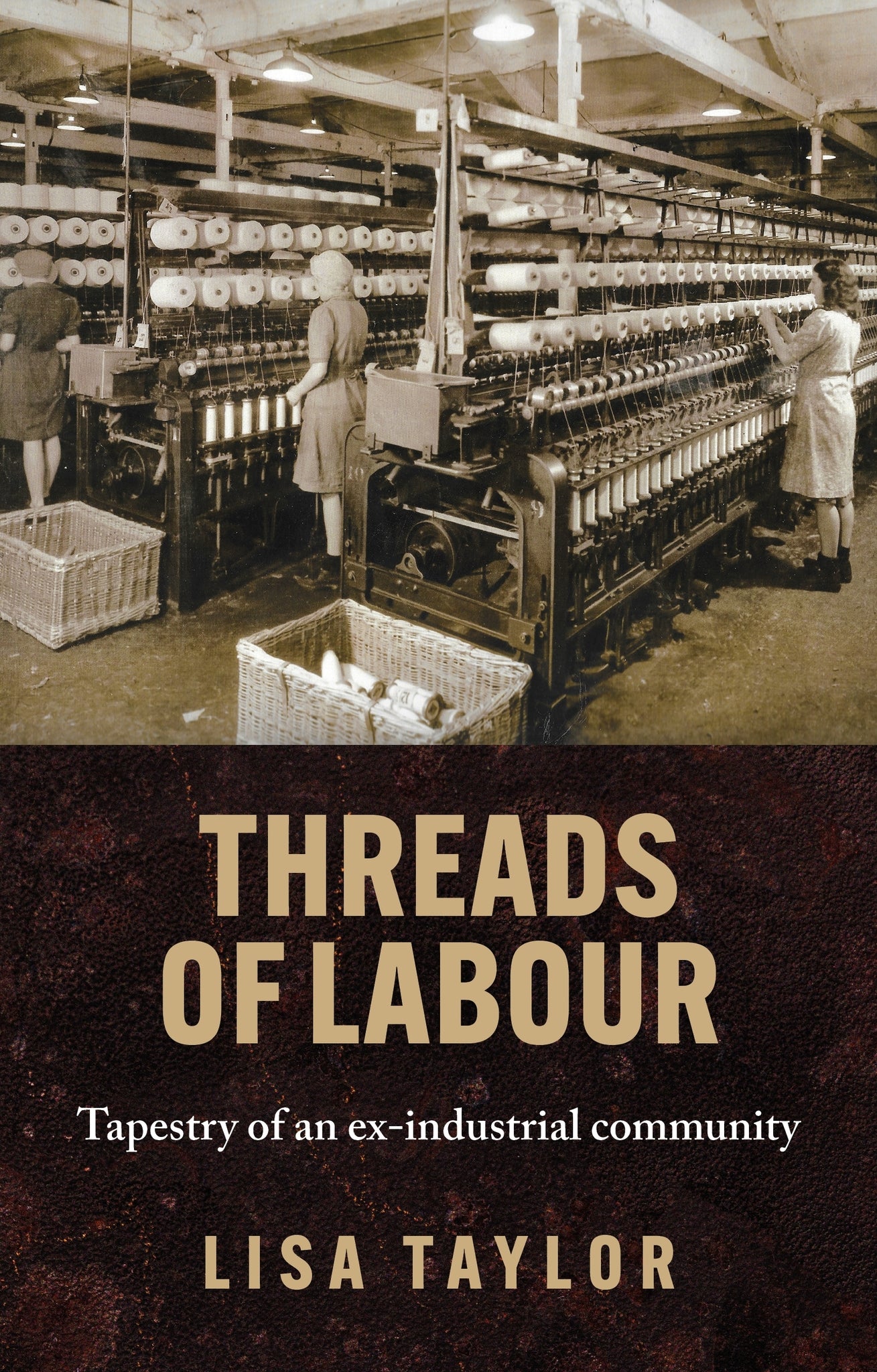We're sorry. An error has occurred
Please cancel or retry.
Threads of labour

Some error occured while loading the Quick View. Please close the Quick View and try reloading the page.
Couldn't load pickup availability
- Format:
-
01 July 2025


SOCIAL SCIENCE / Sociology / Urban, Industrialisation and industrial history, PHOTOGRAPHY / Subjects & Themes / Architectural & Industrial, SOCIAL SCIENCE / Human Geography, History of specific companies / corporate history, Social research and statistics, Textile artworks

'Deindustrialization is often a violent process that tears apart working-class communities. That is why memory projects like this one are so very important. Bringing together former mill workers and new residents now living on the former mill site, Threads of Labour bridges the social distance by inviting participants into each other’s lives. The regenerative possibilities of sharing stories are clear to see in this intimate and bittersweet journey. It is a beautifully woven tapestry of felt histories.'
Steven High, author of Deindustrializing Montreal: Entangled Histories of Race, Residence and Class
'This wonderfully written account of the loss of a carpet factory skilfully weaves together the personal, local, regional and national story of the consequences of deindustrialisation. It records former local workers sense making of that loss in dialogue with new members of the community with no memory of industry that made a place. Lisa Taylor brings a passionate and critical eye to bear on an ordinary locality which helps us understand the legacy of an industrial structure of feeling in national politics and sentiment.'
Tim Strangleman, Emeritus Professor of Sociology at the University of Kent, and author of Voices of Guinness
'Lisa Taylor weaves together autoethnography and history to capture the living memory of a small deindustrialised community in West Yorkshire. By listening to the former workers in the once-thriving carpet industry, she manages to make their feelings of loss and dispossession a tool for understanding the industrial past and the changing relationship of people to the places they inhabit. With an impressive palette of research methods, she reminds us how work has shaped values and spaces, personal identities and social relationships. A great piece of scholarship that reads like a novel.'
Gilda Zazzara, Associate Professor of Contemporary History, Ca' Foscari University of Venice
List of figures
Acknowledgements
Introduction: a drive up Birkby Lane
1. Histories
2. Nostalgia: a response to loss
3. 'History gone': community after carpet
4. Hopeful re-making and the power of art
Conclusion: a journey back to the Bailiff Bridge
Index



